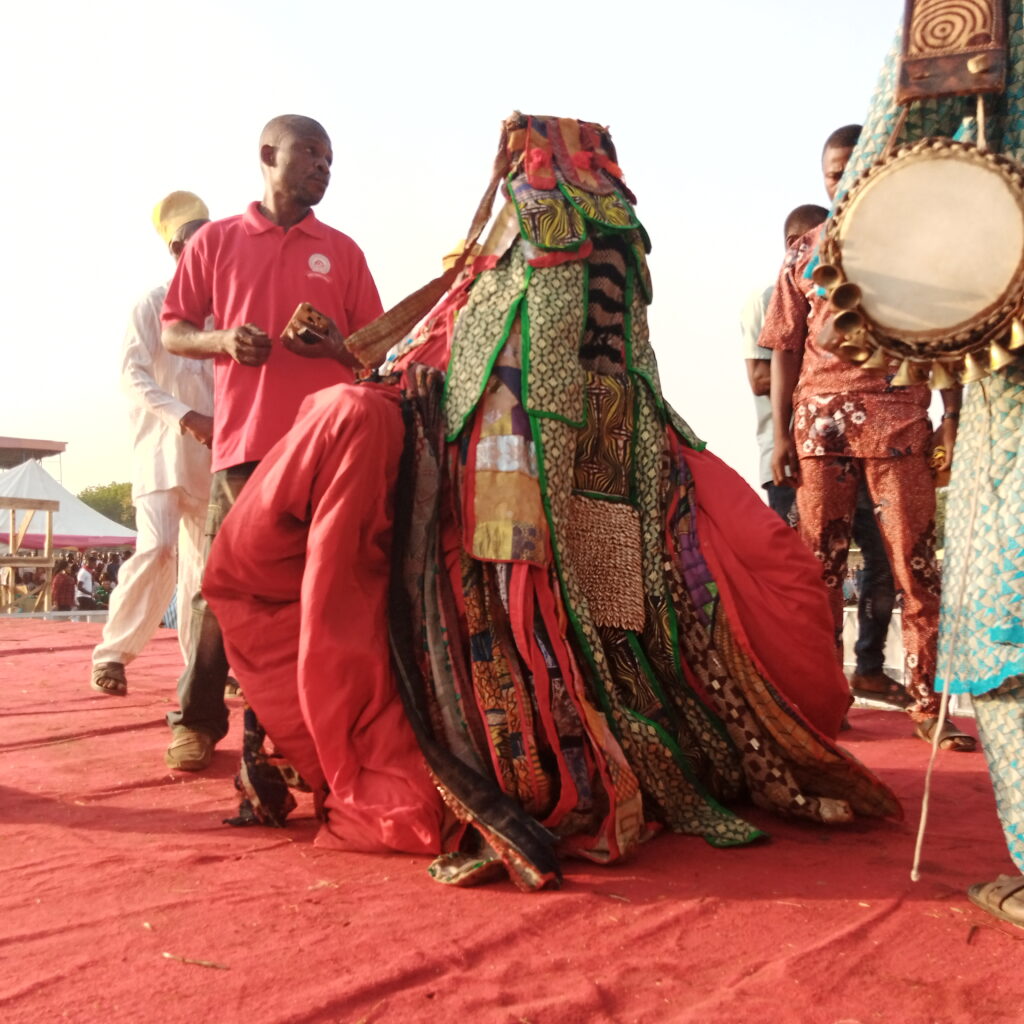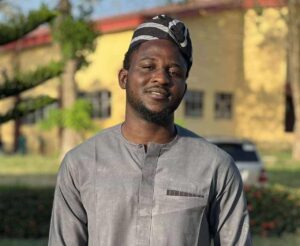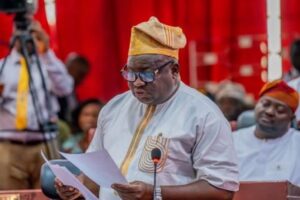
One of the most recognisable festivals in Ogbomoso, the land of the valiant and the second largest city in Oyo state, is the Egungun festival. It is annually celebrated some weeks after the completion of Oro festival (a deity forbidden for females to behold) in the seventh month of the year.
The 2023 Egungun festival started in Ogbomoso on Wednesday, 12th July and will be concluded on Sunday, 23rd July. Egungun Olukotun, the trailblaser, usually commences the festival with an outing featuring maverick dance in its area, Taraa while other egunguns will take turn for their outing.
Like a gnome, egungun, otherwise known as ará òrun kìn-ìn-kin, in stunning attires and scary costumes with mask over its face and laced with all manners of protective and assault charms; amulets and the fearsome ‘bànté included, and in its entourage equally men and women laden with mystical powers and followers exuding euphoria, overwhelmed with passion, and hysterical, is a spectacle to behold. The egungun sways in dancing occasionally; its steps conforming to the beat of the drums throbbed by the skillful drummers also accompanying its procession.
Egungun festival is interesting but it could be a dangerous adventure especially when two rival egunguns’ paths crossed and neither is willing to show deference. Such encounter always results in fracas with the two egunguns engaging in suicidal exchange of incantations. Furthermore, their drummers have the knack to pass message to them either to nudge them to be aggressive and daring or to be cautious, this is often when their processions approach another egungun or Okelerin their usual rendezvous from time immemorial.
Beats such as “O ò le se bíi baba re” meaning that “You can’t emulate your father” in English language is to drive a phlegmatic egungun to extraordinary feats while one such as “Tí ó bá burú tán ìwo nìkan ni yoo ku” (when things go awry you alone will bear the consequence) rending the air, the message of caution is being surreptitiously passed to a recalcitrant one.
Many hold the fallacious belief that egungun festival is all about merry-making (festivity) or to disturb the peace of the community, this notion is spurious, for beyond that it has spiritual significance. It primarily centres on how to promote the well-being of residents of a community. The egungun and its priests and adherents pray for the community and its people, so that “rats will continue to squeak as expected and birds chirp in the normal way.” With libations poured and other sacrificial procedures rendered pleas are also made to God through their mediums against barrenness, for divine boons, abundant grace, longevity of the inhabitants among others. So, Egungun festival is a period for supplications to God which cannot be wished away. The hijack of the process by miscreants to cause mayhem and display of charms should not be seen as all about egungun, it has a wider confine that should be explored for development.
Besides, subjecting the translation of ‘egungun’ to thorough scrutiny, it will be wrong to equate ‘masquerade’ with ‘egungun.’ There is a wide gap in their difference.
According to Merriam-Webster dictionary, a masquerade is conceptualised as “persons wearing masks and often fantastic costumes.” Obviously, in this definition, there is no spirituality attached to its meaning which makes it not apt to be the English name of egungun. Egungun can’t be translated to any language.
In the actual Yoruba sense, egungun is “a visitor that descends from heaven to this planet earth or a spirit representing one’s progenitor who had joined the cult of pantheons.” Does masquerade descend from heaven?
Egungun has various forms, that is, they can be categorised into various genres. They are egungun eleru, egungun egbe, egungun alago, egungun orebe, egungun ode. Some of the popular egungun in Ogbomoso are: Egungun Olukotun, Egungun Danafojura, Egungun Ajokomogbodo , Egungun Lenbe, Egungun Kongba, Egungun Dosu, Egungun Mate, Egungun Ayilere and Egungun Awodagbese.
At this juncture, I want to admonish the Egungun worshipers, Olójè in the Yoruba language, to celebrate the festival joyfully without aiming at unleashing any dastardly act that will put stain on the immaculate attire of traditional religion. They should maintain calmness as expressed in the holy corpus of Ogbeyonu which states:
Ìbínú kò se nnkan ire fún ni
Sùúrù baba ìwà
Àgbà tó ní sùúrù
O n gbogbo lóní
Adíáfún Òrúnmìlà
Ifá n lo rèé fe Ìyà tí n se omo won ní òde Iwo
E wá wo ìyà ni Iwo
Ìyàkan ìyàkan tí Ifá je ní Ìwo kòkéré
E wá wo èrè ní Ìwó
Èrèkan èrèkàn tí Ifá je ní ni Ìwó kò kéré.
…Olayode writes from Ogbomoso, Oyo state.






